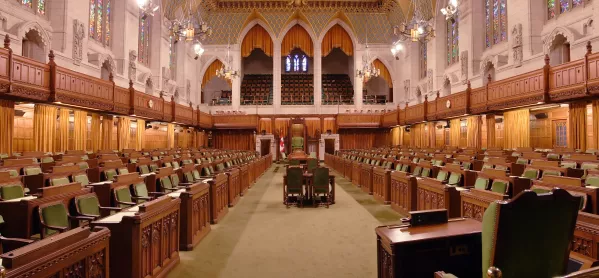A total of 54 per cent of the new House of Commons went to a comprehensive school, up slightly from 52 per cent following the 2017 election.
Research from the Sutton Trust also reveals that a total of 29 per cent of MPs have been independently educated - this is the same as the 2017 general election.
Read: Elite five times more likely to have private education
Augar review: Call for return of grants to help poor pupils enter university
Opinion: ‘Bashing private schools won’t bring education equality’
Of 155 newly elected MPs, 62 per cent were educated at comprehensive schools, while a further 22 per cent went to independent schools and 14 per cent were educated at grammars.
Sir Peter Lampl, chairman and founder of the Sutton Trust and chairman of the Education Endowment Foundation, said:
“The landscape of British politics changed considerably this morning. However, the educational background of the new House of Commons remains similar to the last one. There has been a small increase in the numbers of MPs educated at comprehensive schools.
“If Parliament is to truly represent the nation, it is crucial we act on a wide range of fronts so that talented people from all backgrounds have the opportunity to become MPs.”
Of the major parties, comprehensive schools were attended by 41 per cent of Conservative MPs and 70 per cent of Labour MPs.
Of the 173 MPs who went to independent schools, 11 went to Eton - including Boris Johnson and Jacob Rees-Mogg.
A total of 7 per cent of the general population attended independent schools, in contrast to 41 per cent of Conservative MPs and 14 per cent of Labour MPs.
Oxford and Cambridge have educated 21 per cent of MPs, while a further 33 per cent attended another Russell Group university.
In recent years there has been a growing number of MPs from a group of non-Russell Group universities such as Hull, Brunel, Sussex and Aberdeen, which have 10, eight, seven and five MPs respectively.





